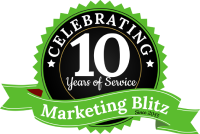Table of Contents
Toggle1: What is Website Design Canada?
Website Design Canada refers to the industry and practice of creating and maintaining websites within the Canadian market. This encompasses a range of services and skills including, but not limited to, website layout design, graphic design, content creation, user interface and experience design, responsiveness to different devices, and search engine optimization (SEO).
Key aspects of Website Design Canada include:
- Cultural Relevance: Designs often incorporate elements that resonate with Canadian audiences, reflecting local tastes, cultural nuances, and bilingual (English and French) content where applicable.
- Compliance with Canadian Regulations: Websites designed for Canadian businesses must comply with local laws and regulations, such as the Canadian Anti-Spam Legislation (CASL) for digital communication and accessibility standards.
- Focus on User Experience: Emphasizing a user-friendly interface that caters to diverse Canadian audiences, including considerations for accessibility and ease of use.
- SEO and Digital Marketing: Integrating SEO practices to ensure high visibility on search engines like Google, which is crucial for reaching Canadian and global audiences.
- E-commerce Integration: For businesses, incorporating e-commerce capabilities is essential, and web design in Canada often involves creating efficient, secure online shopping experiences.
- Mobile Responsiveness: Ensuring websites are optimized for a range of devices, particularly mobile phones, as a significant portion of web traffic comes from mobile users.
- Technological Adaptation: Keeping up with global and local technological trends and incorporating modern web technologies and tools.
Website design in Canada is not just about the aesthetic aspect of a website but also its functionality, performance, and ability to meet the needs of Canadian businesses and audiences.
Web design Canada – need a professional website development ? Contact Marketing Blitz web design team today for a free consultation at 1-800-897-3900
2: Website Design Canada – Understanding Your Business Needs
Are you a small business owner in Canada looking to enhance your online presence with a professionally designed website?
In today’s competitive marketing landscape, a well-designed website is crucial for the success of any business.
It not only serves as a platform to showcase your products or services, but also acts as a powerful marketing tool to attract potential customers.
However, choosing the right website design Canada agency for your business can be a daunting task.
With so many options available, it’s important to make an informed decision that aligns with your business goals and budget.
In this article, we will guide you through the process of selecting the perfect website design agency for your small business in Canada.
Before embarking on your search for a website design agency, it’s essential to first checkout Google website design guidelines and secondly, to have a clear understanding of your business needs and goals.
Take some time to evaluate your current website (if you have one) and identify any pain points or areas for improvement.
Are you looking for a complete website redesign or just some minor tweaks? Do you require any specific functionality or features?
It’s also important to consider your target audience and the nature of your business.
Different industries may have unique design requirements, and it’s crucial to find a web design agency that has experience working with businesses similar to yours.

3: Research Website Design Companies
Once you have a thorough understanding of your business needs, it’s time to start researching web design agencies. Here are some key factors to consider during your search:
- Portfolio and Experience
Start by exploring the portfolios of different web design agencies. Look for examples of their previous work and evaluate whether their design style aligns with your vision. Pay attention to the user experience, visual appeal, and functionality of the websites they have created.
Also consider the website design agency’s experience in the industry. How long have they been in business?
Have they worked with other businesses similar to yours? An experienced agency will have a better understanding of the challenges and requirements specific to your industry.
- Client Testimonials and Reviews
Client testimonials and reviews provide valuable insights into the reputation and quality of a web design agency.
Look for testimonials on the agency’s website or reputable review platforms.
Consider the overall satisfaction level of their clients and any recurring themes in the feedback.
if required, It’s also worth reaching out to past clients directly for their feedback.
This can give you a deeper understanding of the agency’s strengths and weaknesses, as well as their level of professionalism and customer service.
- Technical Expertise
Building a website involves more than just aesthetics.
It requires technical expertise to ensure a seamless user experience, optimal performance, and compatibility across different devices and browsers.
Look for a web design agency that has a strong technical background and stays up-to-date with the latest industry standards and best practices.
Also, consider the web site design company’s proficiency in different web development technologies and content management systems (CMS).
Depending on your requirements, you may need a website built on a specific platform such as WordPress or Shopify.
- Pricing and Budget
Budget is an important consideration for any small business owner.
While it’s tempting to opt for the cheapest option, it’s essential to find a balance between affordability and quality.
Remember that your website is an investment in your business, and a poorly designed website can have negative consequences for your brand image and online visibility.
Request quotes from multiple web design agencies and compare their pricing structures.
Be wary of agencies that offer significantly lower prices than their competitors, as they may cut corners or provide subpar services.
Instead, look for agencies that offer transparent pricing and provide a breakdown of their services.

4: The Consultation Process
Once you have shortlisted a few web design agencies based on your research, it’s time to schedule consultations.
Most reputable agencies offer free initial consultations to discuss your project in detail.
This is an opportunity for you to ask questions, provide insights about your business, and gauge their level of understanding and professionalism.
Here are some key points to cover during the consultation:
- Project Timeline
It’s important to have a clear understanding of the project timeline before committing to a web design agency.
Ask about the estimated duration of the project and whether they can accommodate your specific timeline requirements.
A reliable agency will provide a realistic timeline, considering factors such as their workload and the complexity of your project.
- Communication and Collaboration
Effective communication and collaboration are crucial for the success of any web design project.
Inquire about the agency’s preferred communication channels and the frequency of project updates.
Will you have a dedicated project manager or point of contact?
Clear and timely communication ensures that your feedback and suggestions are incorporated throughout the design process.
- Design Process and Revisions
Understand the agency’s design process and how they handle revisions.
Will they provide multiple design concepts for you to choose from?
How many rounds of revisions are included in their packages?
Clarity on the design process can help you avoid misunderstandings and ensure that the final product meets your expectations.
5: Making the Decision
After completing the consultation process, it’s time to evaluate the information gathered and make an informed decision.
Consider the following factors:
- Alignment with Business Goals
Choose a website design agency that demonstrates a clear understanding of your business goals and has experience working with businesses similar to yours.
A specialized agency that understands the unique challenges and requirements of your industry will be better equipped to create a website that helps you achieve your objectives.
- Quality and Reputation
Consider the agency’s portfolio, client testimonials, and reviews to assess the quality of their work and their reputation in the industry.
A reputable agency with a track record of satisfied clients is more likely to deliver high-quality results.
- Value for Money
While price shouldn’t be the sole determining factor, it’s important to evaluate the overall value for money offered by different web design agencies.
Consider the scope of their services, their level of expertise, and the pricing structure.
Look for a balance between affordability and quality.
6: Website Design Canada FAQs
These answers provide a general overview of what to expect in terms of costs, time, and considerations for web design in Canada.
- How much does it cost to develop a website in Canada?
Answer: The cost varies widely based on complexity, features, and design.
Basic websites can start from a few hundred dollars, while more complex sites can go upwards of several thousand dollars.
- What is the average cost of a web designer?
Answer: The average cost can range from $50 to $200 per hour, depending on the designer’s experience and the project’s complexity.
- How many hours does it take to design a website?
Answer: It can take anywhere from 15 to 80 hours for a basic website and significantly more for complex sites, depending on the design and functionality required.
- Should I pay for a web designer?
Answer: Yes, if you want a professional, customized, and effective website that meets your specific business needs.
- Is there a monthly fee to have a website?
Answer: Often, yes. This can include hosting fees, domain renewal, maintenance, and updates, which can vary from a few dollars to hundreds per month.
- Should I make my own website or hire someone?
Answer: Hiring a professional is recommended for a more sophisticated, functional, and tailored website, especially if you lack the time or technical skills.
- Why is website design so expensive?
Answer: Website design involves expertise in coding, graphic design, user experience, and SEO. The cost reflects the time, skill, and resources needed to create a quality site.
- Why is it so hard to design a website?
Answer: It requires a blend of technical skills (like coding), design expertise, and an understanding of user experience and current web standards.
- How much does it cost to have a website designed and made?
Answer: For a professionally designed website, costs can range from a few thousand dollars for basic designs to tens of thousands for more complex sites.
- Is it free to design a website?
Answer: There are free tools and platforms available, but they come with limitations. Custom design usually incurs costs.
- Can a beginner design a website?
Answer: Yes, using website builders like Wix or Squarespace, beginners can design basic websites. However, for more customized needs, professional skills are recommended.
- Is Wix completely free?
Answer: Wix offers a free plan, but it has limitations like displaying Wix ads and not allowing a custom domain name.
- How much should I budget for a website?
Answer: Budget at least a few thousand dollars for a small to medium-sized business website. Larger or more complex sites will require a higher budget.
- How much does it cost to keep a small website running?
Answer: Ongoing costs can range from $10 to $50 per month for basic hosting, domain renewal, and occasional updates.
- Can you build a website in a day?
Answer: A basic website can be set up in a day using website builders, but custom designs typically take much longer.
- What is the average lifespan of a website design?
Answer: The design of a website typically lasts 2-5 years before it needs a refresh to stay current with design trends and technology.
- How Long Does it Take to Build a Website in 2024?
Answer: Building a website can take anywhere from a few weeks to several months in 2024, depending on the complexity and scale of the project.

7: Conclusion
Finding the right website design agency for your small business in Canada is crucial for creating a visually appealing, user-friendly, and high-performing website.
By understanding your business needs, researching different agencies, and evaluating their expertise and reputation, you can make an informed decision that aligns with your goals and budget.
Remember that your website is an investment in your business, and choosing the right agency can propel your online presence to new heights.
At Marketing Blitz, we have completed over 500 website design and development projects and our digital marketing agency understand the unique challenges faced by small business owners in Canada.
Our team of experienced web designers is dedicated to helping businesses like yours enhance their online presence through professional web design services.
Contact us today at 1-800-897-3900 or locally at 905-458-0476 to book a free, personalized strategy session and take advantage of our Mobile Optimization Package discount deal valued at $150.
Let us help you make your website design in Canada fully responsive and mobile-friendly, ensuring that you don’t miss out on potential customers on mobile-driven devices.
Alex Bangura
Alex, a digital marketing pro with 10+ years of experience, founded Marketing Blitz Inc. He has offer digital marketing consultations to over 500 local businesses across Canada. With a track record of delivering impressive ROI in highly competitive markets, Alex crafts tailored marketing strategies that drive increased website traffic, leads, and sales for his clients. He use his diverse skill set encompassing team collaboration, online and offline lead generation, systems development, marketing automation, campaign management, sales, technical support, process optimization, and operations to give local businesses and fellow marketers advice they can trust.





